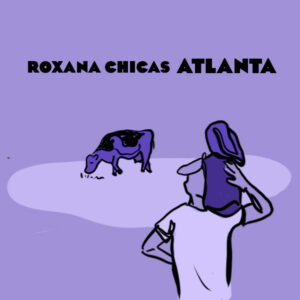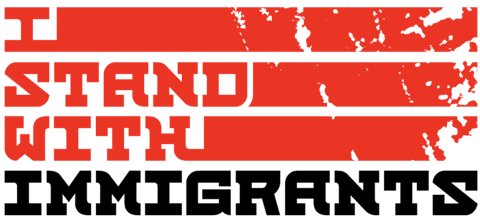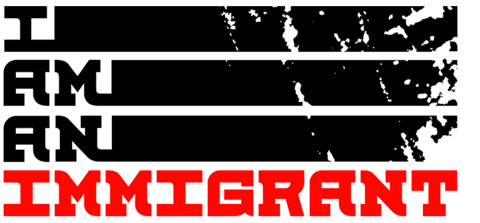Roxana Chicas
The sun is relentless; ceaseless in its power to bring light, only challenged by the clouds and the night. It grows our plants and our fruit and the foods we fondly remember gathering with family to eat. It warms our bodies and the ground that our toes curl up to feel. But the sun also hurts people. It traps them in deserts and pours sweat down their faces. It drains them and blisters the skin that has been judged since they arrived here. According to farmworkerjustice.org, 71% of agricultural workers are immigrants, with 95% from Mexico — they understand the ups and downs of the day and sun better than most. Nurse scientist and temporary protected status holder, Roxana Chicas has now made it her life’s work to research the effects heat has on this population.
 “They have no labor protection laws […] I know that they’re one of the most vulnerable populations, so marginalized and yet every day, every one of us benefits from the harsh working conditions that they have. And yet many people do not understand how food gets on our table. I think as an immigrant myself, it’s important that I use the platform that I have, the education that I’ve gained…to try to provide a better life for the families that are left behind. It’s my opportunity to try to improve the working conditions of those who have come to the United States.”
“They have no labor protection laws […] I know that they’re one of the most vulnerable populations, so marginalized and yet every day, every one of us benefits from the harsh working conditions that they have. And yet many people do not understand how food gets on our table. I think as an immigrant myself, it’s important that I use the platform that I have, the education that I’ve gained…to try to provide a better life for the families that are left behind. It’s my opportunity to try to improve the working conditions of those who have come to the United States.”
Roxana Chicas was four years old when her mom put her on her shoulders and crossed the southern border into Texas. It was El Salvador’s poverty and lack of educational programs that led Roxana’s mom to the painful decision to leave behind their community and family for a land of opportunity. After settling in Georgia, it became ingrained in Roxana’s head that she “had to speak Spanish at home” and to “get a good job,” as her mom pushed, “or [have an] employer who loves you and takes care of you. And that way you always have a job.” But after moving to a new town in 11th grade, the prospect of a job seemed further away. “At that time, Gwinnett County was not diverse. It was very much a white community. Very Christian. I did feel very much like an outsider and didn’t feel like I belonged. I felt so alone that I did not graduate high school.” With only half a credit short from being able to graduate, Roxana instead got her GED in two days and got to work.
Working as an undocumented immigrant can be a series of hoops and anxieties. In Roxana’s case, her bilingual abilities made her highly desirable in the job field and landed her her first job at a pediatrician’s office, “At that time I was about 27 years old. It was the first time that I had ever even thought about myself as a professional or with a degree.” It was at that office where she dealt first hand with low-income populations, spending her day pressing insurance companies to cover certain medicines and procedures. “It was a challenge and I knew that the only way that I could really advocate for my patients was I needed to have a solid understanding of science and physiology. Nursing would give me that.”
Roxana enrolled at Georgia Perimeter College and began her journey to becoming a nurse. It is the comfort, knowledge, and presence that nurses provide that “bridges that connection between patients and providers. Nurses are really uniquely poised to be advocates because we know so much […] and spend so much time with [them].” It is the nurses in the hospitals and the farmers in the field and the cooks in the kitchen and the entrepreneurs with their new technologies and innovations that are picking this country up right now. And many of these essential workers just happen to be immigrants. “We are keeping the food supply chain in place. We are helping in hospitals. There are patients who are dying from COVID-19 without being able to have a family member by their side and there’s an immigrant doctor or nurses right there with that patient helping them get through death so that they don’t die alone. I think immigrants are crucial to the humanity of this country, in this world.”
Though Roxana’s upbringing started in El Salvador with sweet memories of sitting on her grandfather’s shoulders watching the cows graze, it blossomed to a purposeful life dedicated to improving the health of vulnerable populations. Living as undocumented and succeeding all the same has inspired Roxana to give opportunities to those like her. “We need to really get an education and do our best in learning, so that when opportunities arise, we are prepared to take on those opportunities. And those opportunities will come because you have been preparing, going to school, and not letting your immigration status stop you from achieving a dream.”
#CELEBRATE IMMIGRANTS
We all know someone with an immigration experience or have an immigrant heritage story of our own. Join us to stay updated as we #CelebrateImmigrants across the country!


